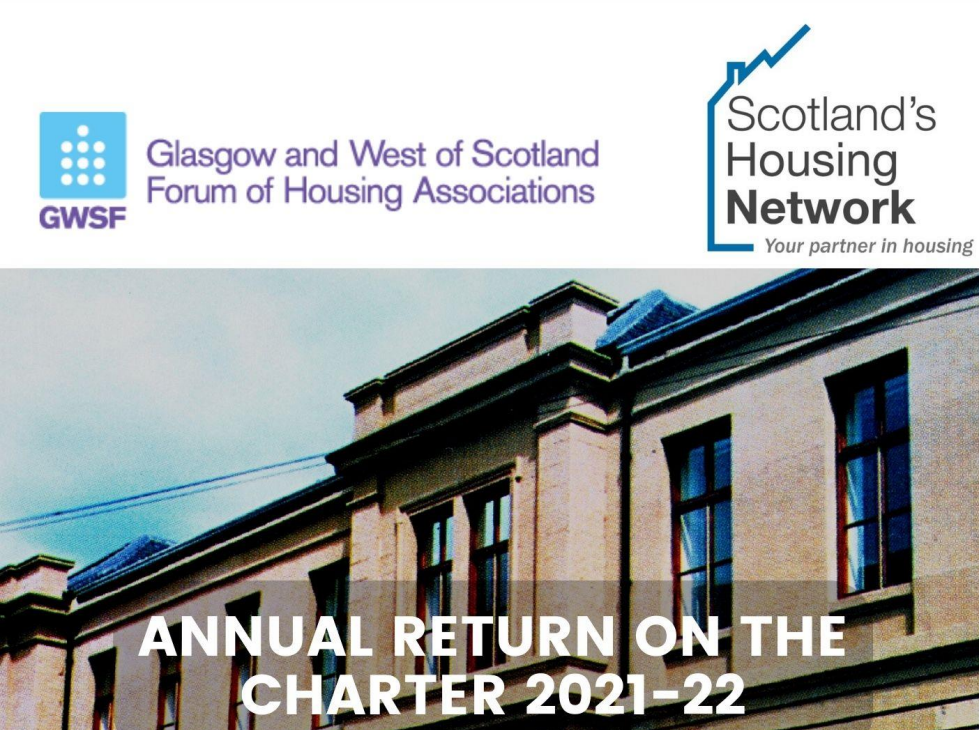GWSF: Evidence backs the value of local but threats remain

The Charter Report has been published today
The power of ‘local’ has once again been strongly evidenced by the latest Charter data but wider threats to the independence of community-based housing associations still exist, according to the Glasgow and West of Scotland Forum of Housing Associations (GWSF).
Produced for GWSF by Scotland’s Housing Network and published today to mark the Forum’s Annual Conference, the 21/22 Charter Report shows that despite the challenges of the pandemic, overall tenant satisfaction remained higher for community-based associations than for other types of association and for councils.
Across the social sector, repairs timescales held up well during Covid, and again with locally based associations outpacing other landlords – emergency repairs took an average of 2.8 hours for GWSF members, compared with 3.7 hours for other associations and 4.8 for councils.
Arrears for GWSF member associations fell from 3.15% of rent due in 20/21 to 2.76% in 21/22. This compares with 3% for other associations and 6% for councils. The Forum says this demonstrates the value of being closer to tenants and getting essential support to those who are struggling with rent payments.
GWSF said that this continued high level of Charter performance came on the back of the incredibly quick and effective way in which local associations had mobilised to get urgent help to people worst affected by Covid lockdowns.
Forum director David Bookbinder said: “Inevitably satisfaction levels across the sector fell slightly during Covid, but still with community-based housing associations proving to be the most responsive. You’d probably expect that being really local should mean being highly responsive, yet this is often conveniently forgotten, not least in options appraisal exercises which can easily be skewed to make transfer the likelier outcome.
“And yet our evidence over the years shows that the less local a housing association becomes, the less responsive a landlord it becomes. Quite why anyone should be surprised by this is perplexing.”
But conference delegates will be warned that for associations facing difficulties, there are numerous external influences which can result in being nudged towards takeover: this could include Scottish Housing Regulator-recommended consultants serving as co-optees, professional consultants acting as interim directors and ‘transfer specialists’, and the actions of SHR itself.
Mr Bookbinder added: “If external consultants brought in to purportedly support a troubled association don’t have the interests of community-based associations at heart, you’ve got a problem. And it’s even more of a challenge if these consultants are hiring each other in different associations to push a takeover agenda.
“Our members know that in the current climate it’s more important than ever to act smart and stay strong and avoid falling prey to the wrong type of external influences.
“And one threat which the entire sector now faces is a loss of independence in relation to rent setting. We hope, though, that we’re now in a position where evidence in the coming weeks will demonstrate that our member associations will be taking a reasonable, balanced approach in their rent consultations, and that this will lead to ministers making a ‘no intervention’ decision for the social sector from April.”







